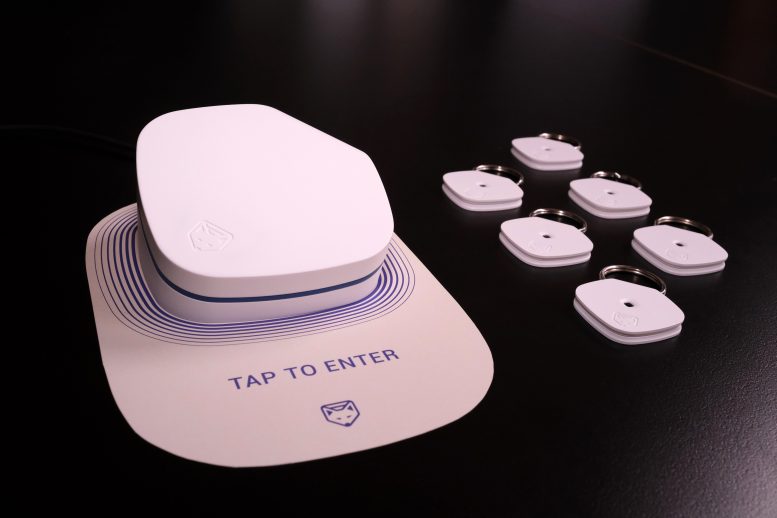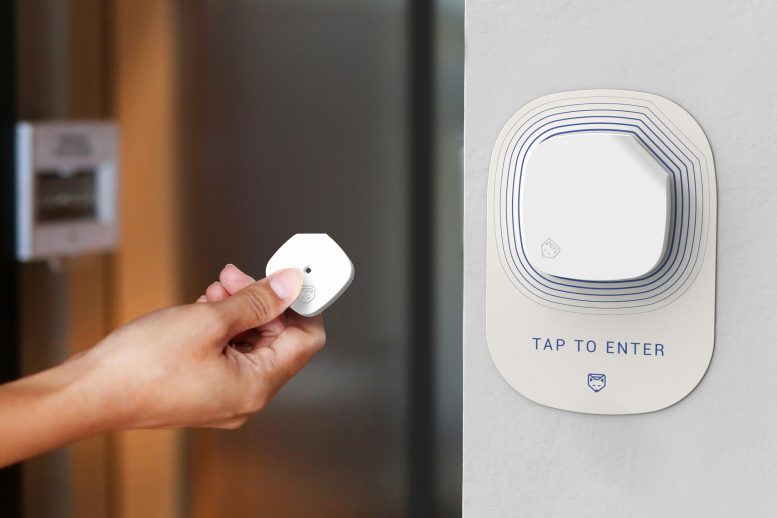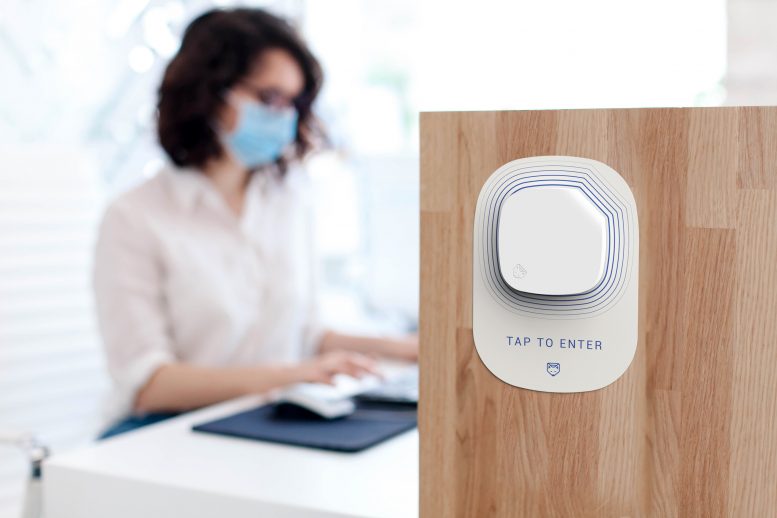Medical Innovations: RMIT University Develops New SARS-CoV-2 Sensor-Soterius That Can Detect Up To 8 Different Variants And Even Asymptomatics
Source: Medical Innovations And Startups Jul 12, 2021 4 years, 6 months, 2 weeks, 6 days, 12 hours, 40 minutes ago
Medical Innovations: Australian researchers from RMIT University, Melbourne in collaboration with biotech start-up Soterius have developed a new sensor that can detect the presence of tiny amounts of the SARS-CoV-2 virus and its variants from a person’s breath or even the environment despite minute amounts present. It works extremely well even with those that are asymptomatic.

The new sensor can help prevent outbreaks and protect communities.
The new biosensor is not only reliable, accurate and non-invasive, but the Soterius Scout sensor can deliver results within a minute to provide the all-clear for someone to enter their work environment or alert them if they need to undertake a medical COVID test and self-isolate.
The extremely efficient and tested successful prototype is now being further developed by Soterius in partnership with RMIT, MIP Diagnostics, the Burnet Institute, D+I and Vestech, towards commercial release in late 2021.
The new biotech sensor will be manufactured in Australia and will initially be delivered to hospitals, with future applications in other essential worker and high-traffic settings including aged care, quarantine hotels, airports, and schools.
The product is also available for overseas consumers and those interested can contact Thailand Medical News.
Co-founder of Soterius Dr Alasdair Wood told Thailand Medical News, “Emerging environmental viral sensors were bulky, energy-intensive, and can detect only one type of virus. However our ultra-sensitive biosensor is so small it can fit on a personal fob card and it’s easy to use ie all you just need to swipe your card over a reader at checkpoints.”
Dr Wood added, “Importantly, one sensor can detect up to 8 viral strains and our technology can be easily adapted to detect new variants or novel viruses as they emerge. We hope the Soterius Scout biosensor could be a vital tool for managing COVID-19, providing accurate early detection to prevent outbreaks and avoid the need for future lockdowns.”
To date, prototype testing conducted at RMIT, in partnership with Burnet Institute; reveal that the Soterius Scout biosensor detects SARS-CoV-2 spike protein fragments with impressive accuracy and no false positives.
The innovative technology can detect COVID-19 even if an individual is asymptomatic.
Study trials also show the sensor has potential to become a top-performing diagnostic tool for respiratory illnesses and it is now being scaled to detect other diseases such as influenza and MERS.
The unique sensor harnesses nanotechnology-enabled biosensors developed by RMIT researchers at its leading-edge Micro Nano Research Facility.
The innovative biosensors technology is covered in a patent application filed by RMIT, with the integrated system the subject of a patent application subsequently filed by Soterius.
Professor Dr Sharath Sriram, RMIT project leader said the collaboration would accelerate the translation of RMIT research into vital new technologies.
Dr Sriram told Thailand Medical News, “COVID-19 is not going away any time soon a
nd we need smart solutions to help us detect the virus and contain outbreaks. It fact the pandemic is expected to last for at least another 6 years if not more”
He further added, “It is exciting to see our platform sensor technology at the core of this smart new solution for the management of COVID-19 and other respiratory viruses in workplaces, to help protect our frontline workers and the wider community.”


The Soterius Scout biosensor deploys a versatile, low-cost, home-grown technology.
The product can be worn as a fob or attached as a fixture within a workspace.
The Soterius Scout biosensor detects virus particles that land on the sensor and in less than one minute can communicate the result to a smartphone or to a reader that users swipe as they enter or exit areas
Should SARS-CoV-2 be detected, Scout directs the user for testing and quarantine.
Interestingly data from a reader can also be transmitted to the cloud to enable remote monitoring of hot spots and support the containment of local outbreaks.
The biosensor uses flexible microelectronics and a synthetic nanotechnology that binds to targeted viruses, enabling specific detection and preventing false positives.
The key components of the technology involve microfabrication of the biosensor. This advanced manufacturing of the electronics will be designed and made in Australia
Importantly every Scout biosensor device can be programmed to detect up to 8 different viral strains using a sensor array.
It should be noted that viral particles that land on the sensor bind chemically, so they are safely locked away within the device.
The SARS-CoV-2 virus biosensors can be easily adapted as part of the manufacturing process to detect new strains as they emerge.
The product has been in development since 2018, prior to the SARS-C0V-2 pandemic for usage to detect other viral pathogens.
The project was led by co-founders Dr Alasdair Wood and Dr Chih Wei Teng
RMIT project team (Functional Materials and Microsystems Research Group) Professor Dr Sharath Sriram, Dr Ganganath Perera, Professor Dr Madhu Bhaskaran, and Dr Md Ataur Rahman.
For the latest on
Medical Innovations and
Medical Start-Ups, keep on logging to Thailand Medical News.


